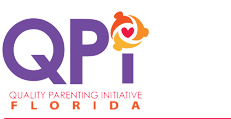QPI Myth BustersBelow are some featured FAQs. Click on the question to view the answer. Are children in out-of-home care allowed to spend the night away without the persons with whom they are staying being background screened?
Question: Are children in licensed out-of-home care allowed to spend the night away from their foster home with, for example, a friend's family or with a church, club or school group on an overnight trip, without the persons with whom they are staying being background screened and/or having a home study completed? Answer: Yes, each caregiver shall use the reasonable and prudent parent standard in determining whether to give permission for a child living in out-of-home care to participate in extracurricular, enrichment, or social activities. A caregiver is not liable for harm caused to a child who participates in an activity approved by the caregiver, provided that the caregiver has acted in accordance with the reasonable and prudent parent standard.
Date Answered: 6-29-07 Is parental/guardian permission required prior to a child in out-of-home care receiving a haircut?
Question: Is parental/guardian permission required prior to a child in out-of-home care receiving a haircut? Answer: There is nothing in statute, code or policy specifically related to the need for parental consent for haircuts. However, in the spirit of maintaining a working relationship with the family, the licensed out of home caregiver shall be sensitive to the parent’s input regarding the types of activities in which the child can participate and the parents must be included, when practicable, in the decision making process.
Date Answered: September 11, 2009 What are the guidelines and restrictions for publicizing photos of children in Foster Care?
Question: What are the guidelines and restrictions for publicizing photos of children in Foster Care? Answer: In an effort to promote normalcy, children in Foster Care should be encouraged to participate in age appropriate activities that promote personal and social growth. This may include having their picture taken for newspaper or yearbook publication or for recognition of accomplishments. Care must be taken to ensure that they are not identified as Foster Children. Additionally, caregivers are permitted to post pictures of the children in their care on social media. However they may not use the child's last name or otherwise identify the child as residing in out-of-home care. Children have the right to self-disclose information about themselves on social media. However it is the responsibility of the caregiver to educate the children in their care about the potential impact about disclosure of sensitive and personal information.
Date Answered: 10/6/08 Does the State of Florida specify an age at which it is legal to leave a child home alone?
Question: Does the State of Florida specify an age at which it is legal to leave a child home alone – for example, when you go to the grocery store, or a part time job, or child gets home before you do, etc.? What about going to places like public parks or to the mall alone? Answer: The state of Florida does not have a law or policy that establishes a specific age at which a child may be left alone, without adult supervision, or be responsible for the care of another child (for example, babysitting). This decision must be based on each child's individual characteristics, such as level of maturity, knowledge, and capabilities. This decision would also depend on other variables, such as the geographic location of the home, proximity to an adult who could help in case of an emergency or other immediate need, or the availability of communication. Examples to consider would be the distance to the nearest adult neighbor, availability of transportation, and access to a telephone in the event of a crisis. Such variables and considerations, as a part of a parent's or caregiver's overall decision making, apply to circumstances in which children are allowed to participate in activities or to visit certain locations without adult supervision. Examples are allowing children to visit public parks, pools, malls, movie theatres, etc., without a specific, responsible adult accompanying them. Such places add an additional element of possible harm to children due to the potential for predators or accidents. While there is no stated age limitation in the state of Florida for allowing a child to be left without adult or other competent supervision, in general, parental responsibility in evaluating whether his/her child is of sufficient age, competence, maturity, etc., should consider the following factors, noting that this list not exhaustive nor all-encompassing:
There are many articles, publications and resources that might help you decide if your child, regardless of age, is mature enough to safely be left at home alone and to help you prepare your child for this step.
Date Answered: 10/14/09 What are "foster care referrals"? Question: What are "foster care referrals"? Answer: Calls to the Florida Abuse Hotline regarding concerns about the care provided in a licensed foster home, group home or emergency shelter that do not meet the criteria for acceptance of a report of abuse, neglect, or abandonment.
Date Answered: 6/7/07 |
Don't See An Answer to Your Question?NOTE: The Center does not process any questions that are specific to a child, family, or specific case of any kind. To Report a concern about a child in Florida, call the DCF Hotline: 1-800-962-2873, 24 hours a day |









